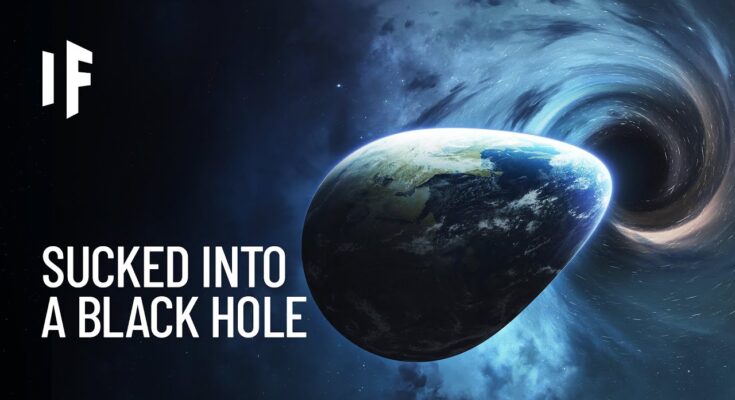What If Earth Were Sucked Into a Black Hole?
The concept of a black hole evokes a sense of cosmic mystery and awe. These enigmatic objects, with gravitational pulls so intense that not even light can escape, challenge our understanding of physics and the universe. But what if, in a scenario that seems straight out of a science fiction movie, Earth were to be sucked into a black hole? This thought experiment explores the scientific, theoretical, and imaginative implications of such an event.
The Nature of Black Holes
Black holes are regions in space where gravity is so strong that it warps spacetime, creating a point of no return known as the event horizon. Beyond this boundary, anything that crosses it is inevitably pulled towards the singularity, a core of infinite density where the laws of physics as we know them break down.
There are several types of black holes:
- Stellar Black Holes: Formed by the collapse of massive stars.
- Supermassive Black Holes: Found at the centers of galaxies, including our own Milky Way.
- Intermediate and Miniature Black Holes: Hypothetical and less understood, but believed to exist in various forms.
The Immediate Effects
If Earth were to be drawn towards a black hole, the initial effects would depend on the distance. Here’s a step-by-step breakdown of the possible scenarios:
- Distant Approach:
- Gravitational Disruption: As Earth gets closer, the gravitational forces would cause tidal forces to stretch the planet. This process, known as spaghettification, would elongate the Earth and ultimately tear it apart.
- Atmospheric Stripping: Earth’s atmosphere would be stripped away first, followed by oceans, crust, and deeper layers.
- Orbital Changes: The moon and satellites would experience gravitational perturbations, potentially being ejected from their orbits or drawn in as well.
- Closer Encounter:
- Radiation and Heat: Approaching a black hole would expose Earth to intense radiation and heat from the accretion disk (the material surrounding the black hole). This would incinerate the planet long before it reached the event horizon.
- Time Dilation: As Earth nears the event horizon, time would appear to slow down relative to an outside observer due to the extreme gravitational effects.
- Crossing the Event Horizon:
- No Escape: Once Earth crosses the event horizon, it is doomed. The planet would continue to be pulled apart and compressed into an unimaginably small volume as it moves toward the singularity.
- Singularity: Ultimately, Earth would be compressed into the singularity, contributing its mass to the black hole’s growth.
Theoretical Implications
From a scientific perspective, the scenario of Earth being sucked into a black hole raises intriguing questions about the nature of black holes and the fabric of spacetime:
- Information Paradox: One of the most significant theoretical issues is the black hole information paradox, which questions whether information that falls into a black hole is destroyed or somehow preserved. If Earth were to be absorbed, the fate of all its information—biological, cultural, and physical—would be part of this unresolved puzzle.
- Quantum Gravity: The extreme conditions near a black hole could provide insights into quantum gravity, a theoretical framework that attempts to reconcile general relativity with quantum mechanics.
Imagining the Unimaginable
While the actual event of Earth being sucked into a black hole is highly improbable, it serves as a powerful thought experiment:
- Human Perception and Survival: Humanity would have no means of survival in such a scenario. The event would be catastrophic on a scale beyond comprehension, ending all life and human endeavor instantly.
- Legacy of Knowledge: If humans had prior warning of such an event, efforts might be made to preserve knowledge and legacy, perhaps by sending information into space in the hope that it might be discovered by other civilizations.
Conclusion
The notion of Earth being sucked into a black hole, while firmly in the realm of science fiction and theoretical physics, provides a dramatic illustration of the power and mystery of these cosmic phenomena. It highlights the fragility of our planet and the vast, often incomprehensible forces at play in the universe. While such an event is exceedingly unlikely, exploring its implications helps deepen our understanding of black holes and the ultimate fate of matter in the cosmos.
4o
